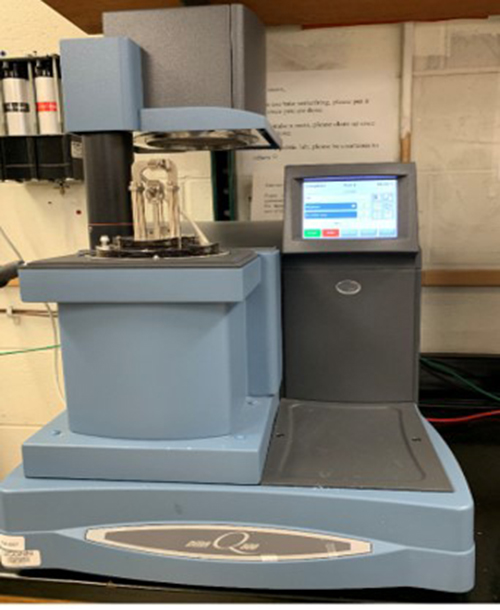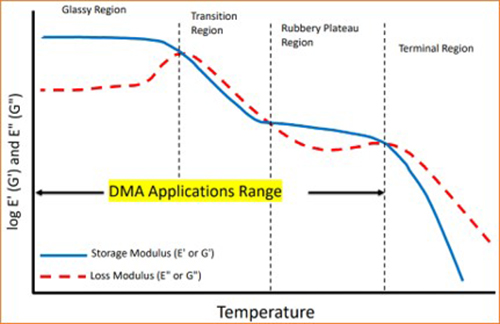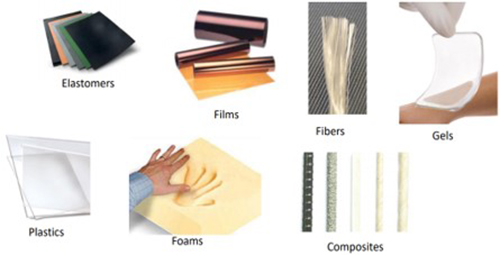TA INSTRUMENTS DMA Q800



Sample Requirements
Single and Dual Cantilever: Evaluation of cure and all purpose
- Sample size
- Single: 17.5 mm L, up to 15 mm W and 5 mm T
- Dual: 35 mm L, up to 15 mm W and 5 mm T
3- Point bend (for medium to high modulus)
- Small: 20 mm W and 10 mm T
- Large: 50 mm L and 10 mm
Tension
Films: 8- 20 mm L, 5- 6.5 mm W and up to 2 mm T
Shear sandwich
Shear deformation of gels, viscous resins and adhesives: 10mm x 10 mm square of up to 4 mm thick
Compression
Low-medium modulus (foams), 15- or 40-mm diameter and up to 10 mm thick
Summary of Technique
A Dynamic Mechanical Analyzer (DMA) measures the mechanical/rheological properties of a material as a function of time, frequency, temperature, stress and strain. DMA works on the principle of applying a force or a deformation to a sample, then sample’s response, which will be a deformation, or a force is measured .
Information Provided & Detection Limits
Composition
Degree of crosslinking, comparison of crystallinity levels, molecular orientation, effect of a filler.
Viscoelastic Properties
Storage modulus, loss modulus, Tan delta, glass transition temperature (Tg), sub-Tg molecular motions (beta and gamma relaxations.)
Physical Properties
Prediction of impact resistance, testing of creep or cold flow, cure behavior.
Lifetime Predictions Using Time Temperature Super Positioning
- Minimum Force 0.0001 N and Maximum 18N.
- Force Resolution 0.00001 N
- Modulus Precision ± 1% and Temperature Range -150 to 600°C
- Frequency Range 0.01 to 200 Hz
- Heating Rate 0.1 to 20 °C/min
- Dynamic Sample Deformation Range ± 0.5 to 10 000 µm
Contact Information
Location: Thermal Analysis, Rheology, and Polymer Processing Lab
Point of Contact: Dennis Ndaya
dennis.ndaya@uconn.edu
860-486-4075